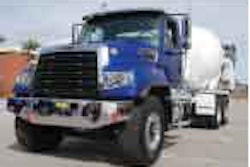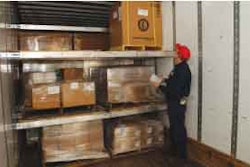Diesel Emissions Reduction Act loses funding
The Diesel Technology Forum said strong public support voiced by U.S. Senate and House leaders to restore funding for the Diesel Emissions Reduction Act at congressional hearings highlights the bipartisan and bicameral support for the clean air program. DERA, established by Congress in 2005 to fund upgrades and modernize the oldest, most polluting diesel engines, is currently funded through 2011. In December 2010, Congress passed and President Obama signed into law legislation that would extend DERA for five more years, but DERA was not funded in the president’s 2012 budget proposal on Feb. 14.
“The strong statements of support for DERA’s funding by congressional leaders …reflect the importance of the program to cleaning our air and improving the environment,” says Allen Schaeffer, DTF executive director. “We fully understand Congress has a difficult and important mission in its effort to reduce federal spending and the national debt. DERA has already been part of this budget-cutting process.”
Schaeffer says that during the recent reauthorization approval, DERA’s funding authorization was reduced by 50 percent over the previous five years even though grant applications exceeded funding by a 7-to-1 margin in recent years. “In addition, program applicants have offered to provide more than $2 billion in matching funds for the program,” he says. “DERA is also one of the most successful clean air programs in existence.”
According to Schaeffer, the U.S. Environmental Protection Agency states DERA returns a minimum of $13 for every $1 invested and, by some estimates, as high as $20 for every $1 invested through environmental and public health benefits.
Because of its success and cost-effectiveness, a diverse coalition of public, private and nongovernmental organizations that worked successfully to gain congressional reauthorization of DERA during the lame duck session has been focusing its effort on restoring funding for the program. “One of the most puzzling aspects of this process is the termination language for DERA in the president’s budget request,” Schaeffer says. “The statement that DERA has achieved its short-term objective of removing or retrofitting the dirtiest diesel engines in use is based on faulty assumptions and inaccurate information. While OMB’s termination language acknowledged DERA’s effectiveness in producing ‘tangible reductions in NOx and PM emissions,’ OMB’s projections of older diesel fleet turnover are not accurate.”
Schaeffer says there are an estimated 11 million existing older diesel engines and equipment that do not have the more recent fuel-efficient clean diesel technology that has reduced emissions by 97 percent. As of 2011, DERA has funded the replacement or retrofit of about 50,000 engines. “There is no question that the number of engines retrofitted or replaced to date represent only the tip of the iceberg of what needs to be accomplished,” Schaeffer says. “A major problem in increasing the use of the new technology is that the economic downturn has increased the average fleet age for highway and off-road vehicles alike, creating more need for DERA funding, not less as OMB states.” n











